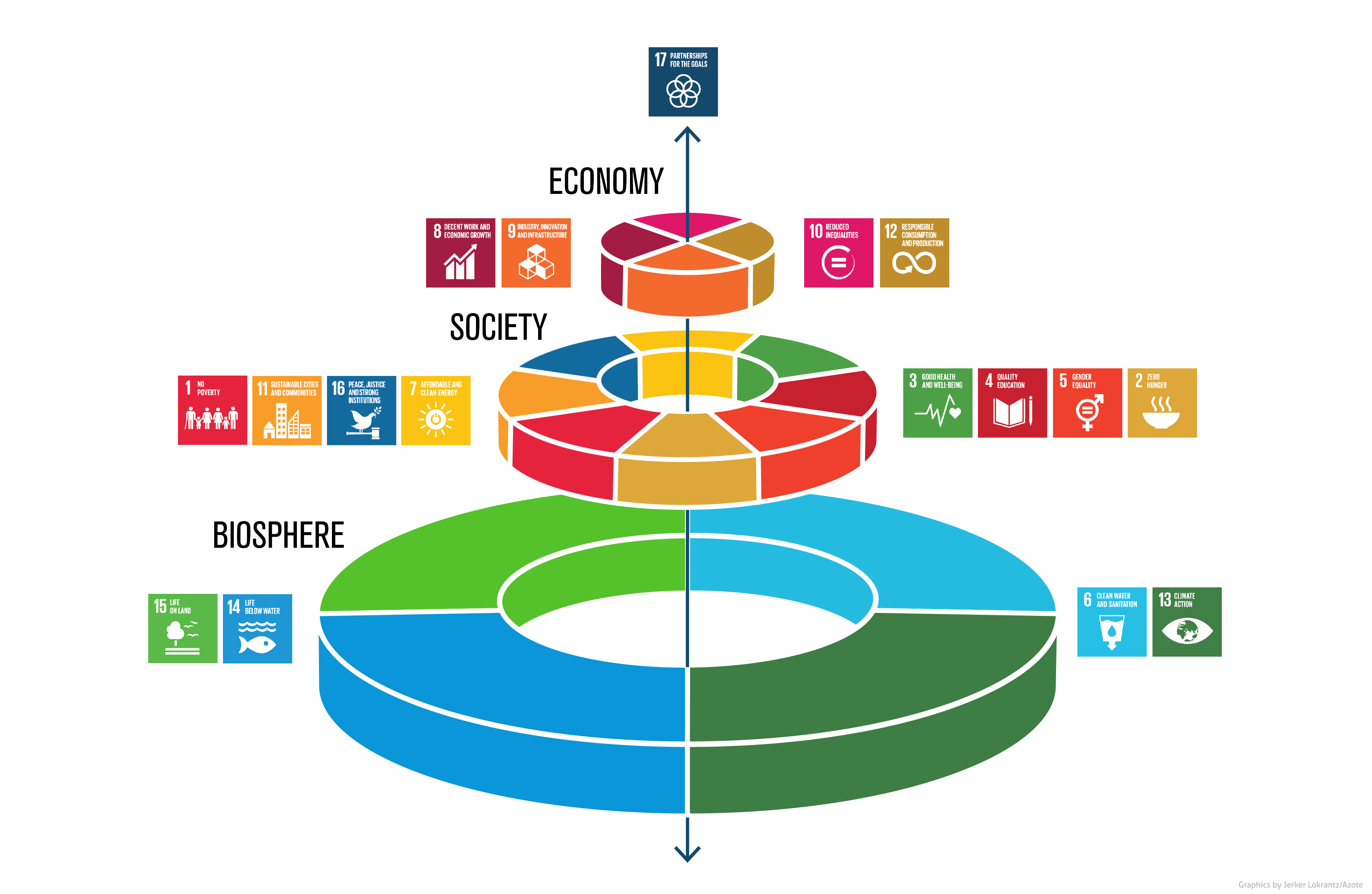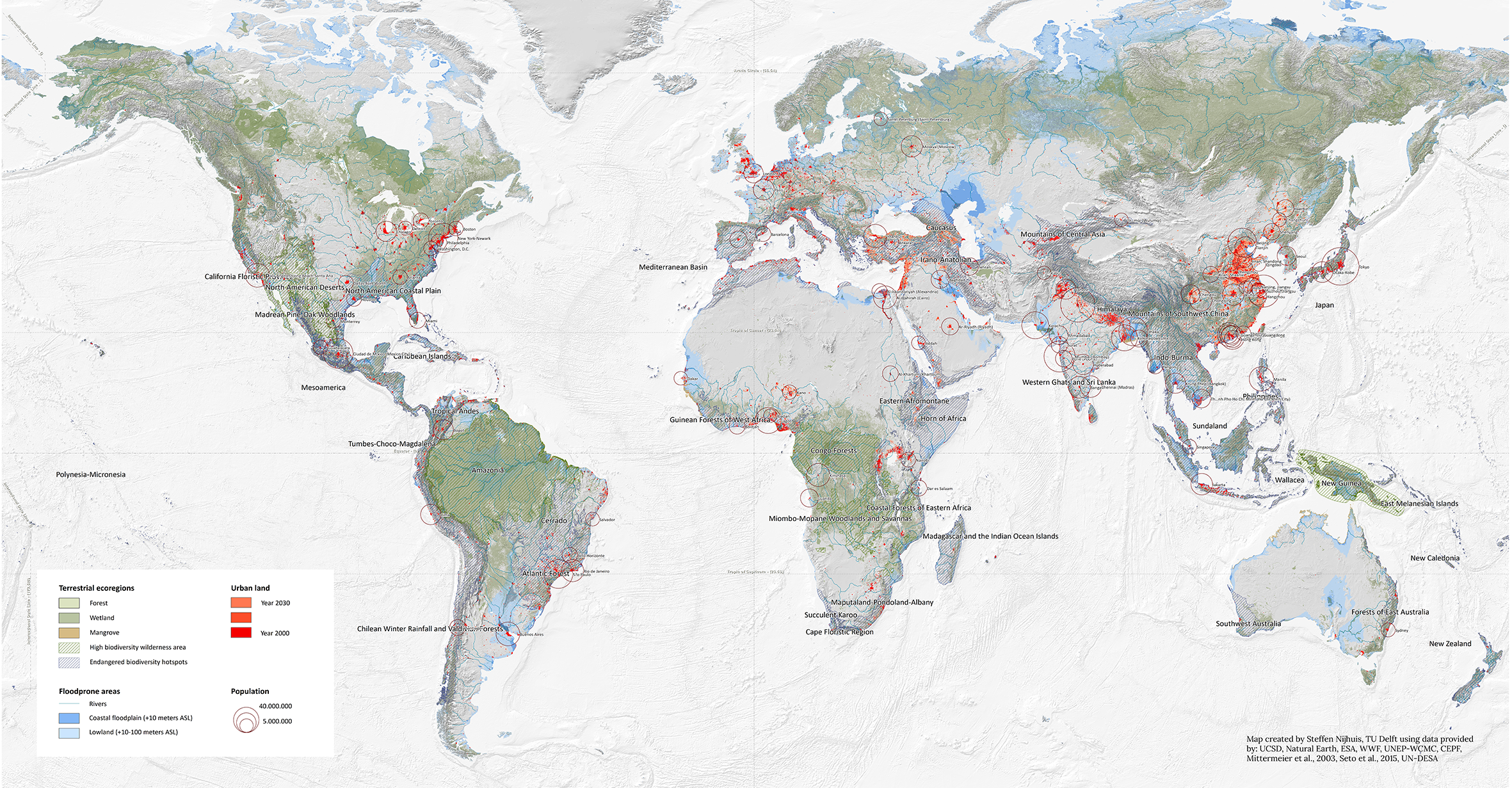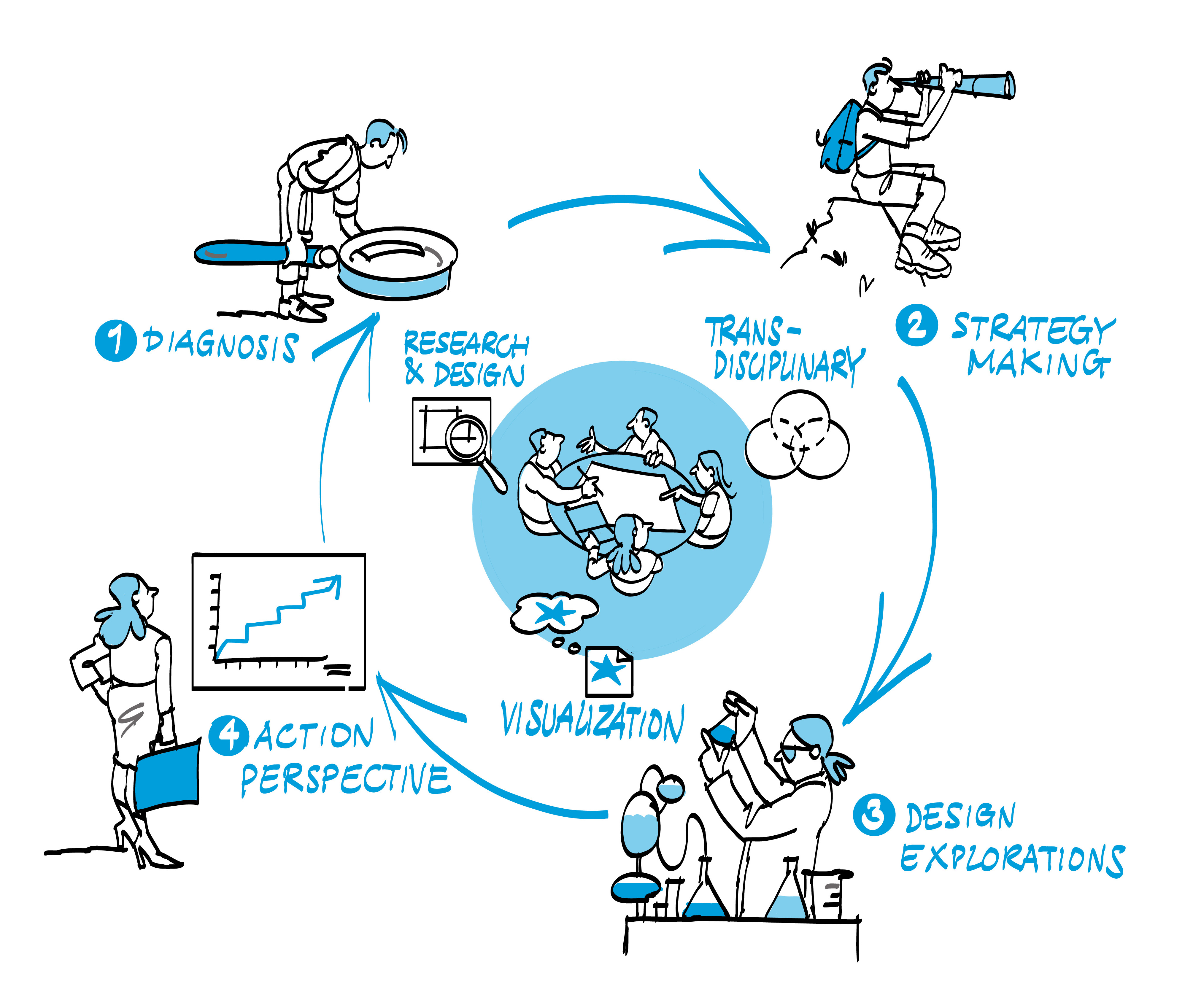Towards a landscape approach for designing sustainable urban environments
Designing with natural and social-cultural processes
'Landscape-based urbanism utilizes understanding of the landscape system and its social, cultural and ecological processes ~ landscape logic ~ as the basis for sustainable urban planning and design'
Sustainable urbanization
Landscape as the basis for social and economic development. Image:
©
Stockholm Resilience Centre
LANDSCAPE LOGIC
Biodiversity and urbanization. Map created by Steffen Nijhuis, TU Delft using data provided by: UCSD, Natural Earth, ESA, WWF, UNEP-WCMC, CEPF, Mittermeier et al., 2003, Seto et al., 2015, UN-DESA
LANDSCAPE-BASED URBANISM:
• Learns from landscape history and vernacular practice and makes use of indigenous and traditional ecological knowledge
• Employs knowledge-based spatial design as an integrative, multi-scale and transdisciplinary approach and exploits the power of digital design technologies
• Develops resilient and adaptive spatial frameworks: robust landscape structures for the coherent development of a region (long-term strategy) and at the same time setting the scene for local projects (short-term intervention)
• Creates and regenerates living landscape systems in which (bio)diversity, cultural history and multi-functionality lead to sociologically and ecologically inclusive and water sensitive urban landscapes
Landscape-based Urbanism as a co-creative process for generating knowledge and ideas. Image: © Steffen Nijhuis, TU Delft
Landscape-based urbanism is an international research and design perspective affiliated to Delft University of Technology, Faculty of Architecture and The Built Environment, Department of Urbanism, Section Landscape Architecture and developed by Prof. Dr. Steffen Nijhuis
Landscape-based urbanism contributes towards the following Sustainable Development Goals (SDGs):




